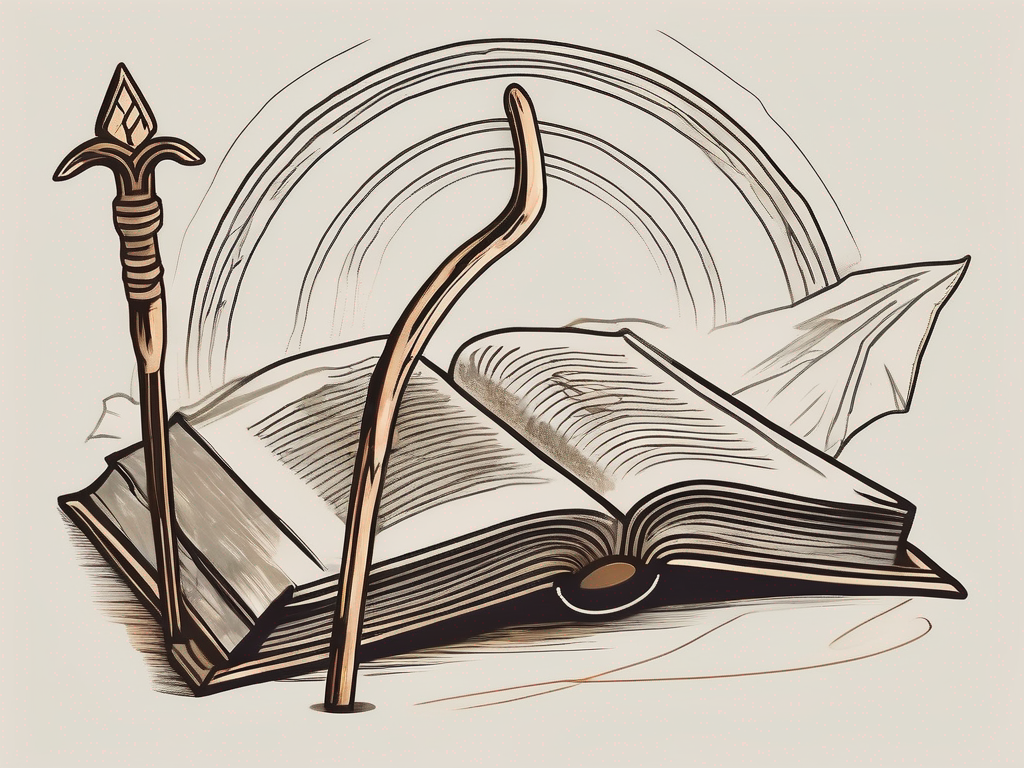Empedocles, a Greek philosopher from the 5th century BCE, is known for his significant contributions to the field of philosophy. His work greatly influenced the development of Western thought and has left a lasting impact on various disciplines, including science and philosophy. In this article, we will explore the life, teachings, controversies, and relevance of Empedocles’ philosophy in the modern world.
Understanding Empedocles: The Man and The Philosopher
Early Life and Education
Empedocles, a renowned philosopher, was born in Acragas, a city in Sicily, during a time of great intellectual and cultural flourishing. Little is known about his early life and education, but historical records suggest that he came from a wealthy and influential family. Growing up in a privileged environment, Empedocles had access to the finest education of his time.
It is believed that Empedocles received a well-rounded education, studying various subjects like mathematics, rhetoric, and philosophy. His thirst for knowledge was insatiable, and he immersed himself in the teachings of the great thinkers of his era. From the ancient texts of Pythagoras to the philosophical inquiries of Parmenides, Empedocles absorbed a wealth of knowledge that would shape his own philosophical endeavors.
These early experiences laid the foundation for Empedocles’ later philosophical pursuits. The intellectual climate of Acragas, with its vibrant philosophical debates and diverse range of ideas, undoubtedly played a significant role in shaping his worldview. Empedocles emerged as a philosopher with a unique perspective, ready to challenge existing beliefs and offer his own profound insights.
Philosophical Beliefs and Teachings
Empedocles developed a philosophical system that was both revolutionary and deeply rooted in ancient wisdom. At the core of his teachings were the principles of the four elements: earth, air, fire, and water. According to Empedocles’ theory, these elements are not only the building blocks of the physical world but also the fundamental constituents of all existence.
For Empedocles, the four elements were not merely material substances; they represented the eternal and unchanging forces that underlie the universe. Each element possessed its own unique qualities and characteristics, contributing to the diversity and complexity of the world we perceive. Empedocles saw the interplay of these elements as the driving force behind all natural phenomena.
In addition to the four elements, Empedocles posited the existence of two opposing forces: love and strife. These forces, he believed, were responsible for the constant interaction and transformation of the elements. Love, as a unifying force, brought the elements together, creating harmony and stability. Strife, on the other hand, acted as a disruptive force, causing the elements to separate and disintegrate.
Empedocles’ philosophical teachings emphasized the interconnectedness of all things. He believed that everything in the universe, from the tiniest particle to the grandest celestial body, is composed of the four elements and influenced by the harmonious or disharmonious interaction of love and strife. This concept, known as Empedoclean cosmology, has had a profound impact on later philosophical thought, particularly within the realms of metaphysics and cosmology.
Empedocles’ ideas were not confined to abstract philosophical musings; they had practical implications as well. He believed that by understanding the principles of the four elements and the forces of love and strife, individuals could gain insight into the workings of the natural world and their place within it. This knowledge, Empedocles argued, could lead to a more harmonious and balanced life, both individually and collectively.
Empedocles’ philosophical legacy extends far beyond his own time. His ideas have influenced countless philosophers and thinkers throughout history, from Aristotle to Nietzsche. The enduring relevance of his teachings speaks to the profound insights and intellectual depth of this ancient philosopher.
Empedocles’ Major Philosophical Contributions
Empedocles, a Greek philosopher and scientist from the 5th century BCE, made significant contributions to the field of philosophy. His ideas, which were revolutionary for his time, continue to influence our understanding of the natural world and the human experience.
The Four Elements Theory
One of Empedocles’ most notable contributions is the theory of the four elements. According to this theory, all matter in the universe is composed of four fundamental elements: earth, air, fire, and water. Empedocles believed that these elements were not created or destroyed but rather combined and separated through the forces of love and strife.
Empedocles’ theory of the four elements served as a foundation for understanding the nature of matter and the universe. It laid the groundwork for later scientific advancements and influenced the work of renowned philosophers, such as Aristotle and Plato. The theory of the four elements provided a framework for explaining the diverse phenomena observed in the natural world, from the growth of plants to the movement of celestial bodies.
Theory of Love and Strife
In addition to the four elements theory, Empedocles introduced the concept of love and strife as the two opposing forces that shape the universe. Love acts as the force of attraction, bringing things together, while strife acts as the force of separation and conflict. Empedocles believed that the interplay of these forces determines the state of the world, reflecting his deep understanding of the complexities of human existence.
Empedocles’ theory of love and strife goes beyond the physical realm and extends to the realm of human emotions and relationships. He believed that love and strife were not only present in the natural world but also within individuals and societies. According to Empedocles, love fosters unity and cooperation, while strife leads to division and discord. This philosophical insight into the human condition resonates with our own experiences of love, conflict, and the delicate balance between the two.
Furthermore, Empedocles’ theory of love and strife has implications for ethics and morality. He argued that the path to a harmonious and just society lies in cultivating love and minimizing strife. By recognizing the interconnectedness of all beings and promoting empathy and compassion, individuals can contribute to the overall well-being of the world.
Empedocles’ philosophical contributions continue to inspire and challenge contemporary thinkers. His theories provide a framework for understanding the natural world, the complexities of human existence, and the importance of love and unity in creating a harmonious society.
Influence on Later Philosophical Thought
Empedocles’ philosophical ideas had a profound influence on later thinkers, particularly within Platonic and Aristotelian philosophy. His theories and concepts were highly regarded and incorporated into the works of influential philosophers.
Impact on Platonic Philosophy
Plato, one of the most renowned philosophers in history, recognized the value and insights offered by Empedocles’ ideas. Plato incorporated Empedocles’ theories into his own works, building upon them and expanding their reach. Empedocles’ concept of the four elements, namely earth, air, fire, and water, resonated with Plato’s belief in the existence of fundamental forms or ideas. Plato saw the elements as representations of these forms, further developing the notion of a higher reality beyond the physical world.
Moreover, Empedocles’ emphasis on the interconnectedness of all things aligned with Plato’s theory of Forms. Plato believed that everything in the physical world was a mere reflection or imperfect copy of the ideal Forms. Empedocles’ ideas reinforced this notion, as he argued that all things were composed of the same elements, constantly interacting and transforming.
Impact on Aristotelian Philosophy
Aristotle, another influential philosopher, was greatly influenced by Empedocles’ naturalistic approach. Empedocles’ concept of causality, which posited that everything had a cause and that change occurred through the combination and separation of the four elements, resonated deeply with Aristotle.
Aristotle expanded upon Empedocles’ ideas, developing his own theory of causality known as the Four Causes. According to Aristotle, every change or movement had four causes: the material cause, the formal cause, the efficient cause, and the final cause. This framework allowed Aristotle to explain the nature of things and their purpose, building upon Empedocles’ initial insights.
Empedocles’ Legacy in Modern Philosophy
Empedocles’ philosophy continues to shape modern philosophical discourse, leaving a lasting impact on various fields of study.
Contemporary thinkers have interpreted and adapted Empedocles’ ideas, contributing to our understanding of environmental ethics and ecological thought. Empedocles’ emphasis on interconnectedness and the delicate balance of nature remains relevant in today’s world, urging us to consider the consequences of our actions on the planet and fellow beings.
His concept of the four elements has also found resonance in modern scientific theories, such as the study of the periodic table and the classification of matter. While the scientific understanding of these elements has evolved, Empedocles’ initial insights paved the way for further exploration and understanding of the fundamental building blocks of the universe.
Furthermore, Empedocles’ ideas have influenced the field of metaphysics, particularly in relation to the nature of reality and the existence of multiple forces at play. His emphasis on the dynamic and ever-changing nature of the world has sparked debates and discussions among philosophers, contributing to the ongoing exploration of the fundamental nature of existence.
In conclusion, Empedocles’ philosophical ideas have left an indelible mark on the history of thought. From his influence on Plato and Aristotle to his continued relevance in modern philosophy, Empedocles’ insights have shaped our understanding of the world and continue to inspire further exploration and contemplation.
Criticisms and Controversies Surrounding Empedocles
Discrepancies in Empedocles’ Theories
While Empedocles’ philosophical ideas were groundbreaking, they were not exempt from criticism. Some philosophers argued that his conceptions of the four elements and love and strife were overly simplistic and lacked empirical evidence. Critics questioned the scientific basis of his theories, suggesting that they were more metaphysical in nature.
The Debate Over Empedocles’ Death
Another controversy surrounding Empedocles revolves around his mysterious death. According to one account, he met his demise by leaping into the volcanic crater of Mount Etna, seeking to prove his immortality. However, this story is often considered more of a legend than a historical fact. The circumstances surrounding his death remain uncertain, giving rise to conjecture and speculation.
The Relevance of Empedocles’ Philosophy Today
Empedocles’ Philosophy in Contemporary Thought
Despite the unresolved controversies surrounding Empedocles’ theories and his enigmatic fate, his philosophy continues to hold relevance in contemporary thought. His emphasis on the interconnectedness of all things and the delicate balance of nature resonates with modern environmental and social concerns. His ideas invite us to reflect on our relationship with the natural world and encourage us to cultivate harmony in our actions.
Empedocles’ Teachings in Modern Science and Philosophy
Empedocles’ legacy can also be observed in various scientific and philosophical disciplines. His ideas on the four elements influenced the development of chemistry and the understanding of matter. Furthermore, his exploration of love and strife as fundamental forces has parallels in evolutionary biology and social sciences, highlighting the ongoing relevance of his concepts in contemporary intellectual pursuits.
In conclusion, Empedocles stands as one of the influential figures in the history of philosophy. His theories on the four elements, love and strife, and the interconnectedness of all things have shaped our understanding of the universe and continue to inspire contemporary thinkers. While his ideas may have sparked debate and controversy, there is no denying the lasting impact of this Greek philosopher and his enduring contributions to the world of thought.












